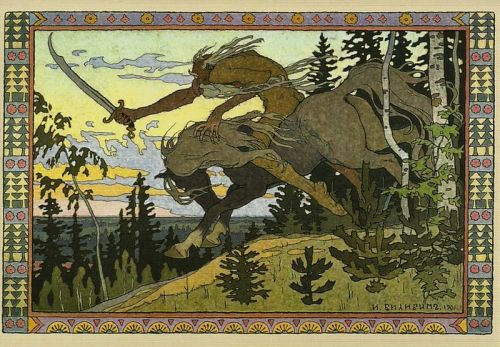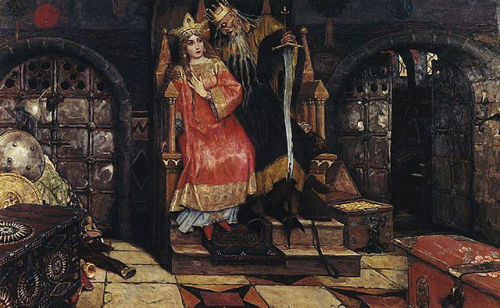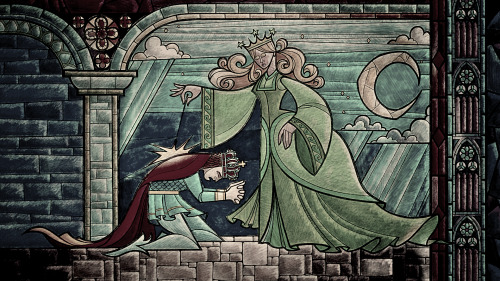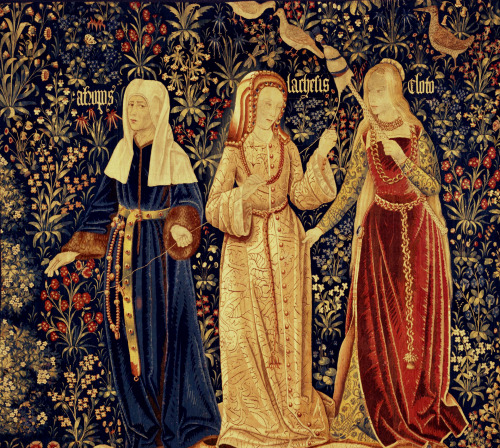#myths on magic
On the origins of magic: how the wands came to be. (4/?)
From: Postcolonial resistance in the mythologies of the magical peoples of the South Asian subcontinent ed. Sunil P. Patil (1991).
Old magic. Old magic old magic old magic.
How could people forget?
How could people forget the magic that had helped raise the great stones, that had marked the stars that pyramids pointed to, that had sunk ancient cities and raised rivers from deserts?
How could they forget?
All too easily, the answer rang back, all too easily. They had forgotten how to live, breathe and drink magic. Had forgotten how the men of yore had lived without wands; how without those twigs the magic was channeled through movement and sway and song and sacrifice. How without those twigs the only barrier to the magic you could make was yourself, was your own mind, your own sacrifice. How without those twigs you could do anything when you had enough strength.
Magic was a muscle, the elders said. Practice with it and it shall grow, just as by lifting rocks and timber each day your muscles shall grow. But take one of those sticks, those little twigs and you are using a lever to do that work for you, you are letting yourself be weak when you could be so so so strong.
The young ones ignored them, pointed at them laughed at these elders stuck in their old ways with dreams of a great and ancient past but naught to show for those dreams, and argued that now they were old how could they sway and sing and sacrifice? Was it not better to do less for more? To conserve, waiting for a greater task, The Great Task? Why offer themselves up mind, body and soul to magic when in a moment, with a mere flick of a wrist, with a wand they could do the same thing just as well? And these elders could lament wands all they liked, but they had nothing to show for all their boasts of glory, could not with such precision, with such finesse accomplish the things these children could.
The elders’ faces were impassive.
The elders’ faces betrayed nothing.
So it went, for years and years, the children slowly outnumbering the elders, growing proud and mighty in their strength until the elders worried. Worried that in their pride the children would grow reckless, would forget that magic was no toy but a powerful force, one to be reckoned with - one that would demand its pay.
A great council they summoned, drawing magical folk from every corner of the uncivilized world and told them of their fears - of how they feared the children had forgotten the old magics of the world, had forgotten what it meant to channel power and force, what it meant to be responsible.
They fought. Father against son. Mother against daughter.
And late that night elders from every corner of the uncivilized corners of the world met in an old forest, untouched by time and human hands, still throbbing with the ancient magic of the world, deep and dark. There they breathed their old and ancient magic for the very last time, letting it seep through their veins, rich and heady and intoxicating. Then with calls foreign to all, they rose and bound their children.
You want wands? they asked the magic they worshipped and worked with, You want levers and magic getting weaker?
Then so be it.
They bound the magic and their children all at once, forever cursing those who took in hand the twigs they called wands, weapons, to be doomed to a life torn away from the old magics of the world. So it was that when a child used a wand, working wandless came to be a burden, a path fraught with great difficulty that few except the most dedicated would ever tread.
It is their punishment. The consequence of their folly.
When you see them, with their wands, remember the old magic, the magic that you breathe, drink and live. It is this magic in your veins, the magic of the civilized lands of the world. Dusty, old with time. Exercise it, children, use it, concentrate, feel it, let it flow through you, lest it be taken from you and lost forever.
I am disappointed, of course, that father never got to see this book. I think he would have quite enjoyed it. Would have found plenty of good use for it in his research.
Naturally, as you might imagine, the book is popular only among a few select academic circles in the wizarding world. Wands as punishment? Sacrilege! Though I suppose one ought to be thankful it did not receive the Myths of Magical Europe treatment. A.R.
(Submitted by essayofthoughts, with a few minor edits on my part.)
Post link
Amar baccha! My children, listen, for I have a story to share with you.
In the beginning there was the Kund, the deep wellspring from where the first Ohm of the Universe flowed. Soon other sounds and utterances flowed through, forming brooks of syllables, joined into streams of words, joined into rivers of sentences, joined into seas of stories, joined into oceans of truth.
And each sound and syllable and word, each sentence and story and truth, each little drop carried with it the Power of Creation and Destruction, the Power of Language: together like the ebbs and flows of tidal waves, like drought and floods, like sunshine and rain.
Creation comes from Destruction comes from Creation.
And this Power, the Power of Language, this exists for all those who speak, listen, write, read. For all those that carry Language in their heads and in their hearts. For it is Language that is your birthright and it is Language that is your responsibility.
And Language is not to be restricted, to be hoarded as though it is some precious and rare gold or silver. No, Language is to be shared by all, for it is everyone’s birthright, and everyone’s responsibility, to partake in the ebbs and flows of Creation and Destruction.
You are not the Master of Language, much like you are not the Master of Water or Air. You, all of you, are in Service to Language, much like you are in Service to Water or Air - Powers that create you, Powers that sustain you, Powers that destroy you.
There are some of you that will be entrusted to ensure the safety, sanctity, sanctuary of Language. You will be known as the Compassionate Ones, the Shafiqs, caretakers and custodians of Language and all those that wield it. It is your responsibility to care for the hearts and heads of those you serve, to ensure that their needs and desires are met, that they remain safe and protected and well. It is your responsibility to ensure that Language is shared freely, that Language is served for the greater good, that all hold access to Language and that your Language does not die before it is time.
And oh how its time will threaten to come! For there will be forces that claim to be Masters of Earth and Fire, claim their right to ravage your lands and control your people with ever-changing boundaries and restrictions. Forces that claim to be Masters of Water and Air and destroy all which you build in symbiosis to create that which dominates. Forces that claim to be Masters of Language, their own Language, while denigrating yours as lesser-than, impure, powerless.
And then there will be forces of your own. You claiming responsibility as privilege and using your custodianship as cruelty. You forgetting your own birthright and believing those that say your power can only be accessed by a select few through specific means foreign to you. You letting go of your Language, that which gives you Life, and forgetting all the syllables and stories and truths that it carries.
Destruction comes from Creation comes from Destruction.
The Power will still manifest, still create and destroy, even without your wielding of Language, even without those who speak and listen and write and read. It is Power that has existed before there was Humanity and will exist after there is Humanity, for it is Power that has created the Universe and will destroy the Universe.
Learn to approach Language with respect and responsibility, and you will gain strength, fortitude, prosperity, livelihood. But treat Language as though it is something you can control, restrict, deny, destroy, and you will find that it will control, restrict, deny, and destroy you.
And if you ever find that you are close to the brink of no return, return to the Waters: the oceans, the seas, the rivers, the streams, the brooks. Return to the wellspring, to the Kund, and call out for a new Ohm.
Remember this, baccha, for forgetting is the first step to Destruction without Creation.
[[source:Belinda Meggit
So thepostmodernpottercompendium is hosting this really interesting series on the origins of magic which is now becoming an interesting story in progress. I have been meaning to write this story for a long time, ever since I found this picture in researching the bede, or gypsy boat people of Bangladesh:she’s one of them. I knew she was the face of thedainee that mysteriously guides the Bideshis as soon as I saw her picture, and now I want to write her story.
The line about the kund and the first ohm is from a piece by Minal Hajratwala, about being a kinky queer femme Indian woman. In the piece she plays a lot with language and draws the connection between “cunt” and “kund” - as in “kundalini”. The name of the piece escapes me right now but it was performed in this year’s Yoni Ki Baat in SF.]]
Post link
Myths on Magic: Koschei the Deathless and the Winter Order
Koschei was Deathless they said. A Horcrux for a heart, a Horcrux in his head, and both ever-regenerating, made from long-ago thieved Philosopher’s Stones, made the old way, not with elements and magic but with the bones and brains of newborns, fresh and alive with youth and magic.
Not only was he impossible to kill, but he was truly unaging, the stones seeping their elixir into his bones and muscles and blood. He did not bleed red as your I, the babushki, the grandmothers would say. He bled a golden ichor, like the gods.
One in his heart, one in his head, that was the trick. Before the knowledge of Greek Healers, headed by Galen and Hippocrates and Asclepius headed into the cold expanse to the north one man stole two sacred stones, split his soul and made them reliquaries, and had the stones placed in his belly. He almost died then. But he lived and the stones, they think, saved him.
They merged together in his belly and when he died the first time they remade his body without the aid of others, and the stones remade themselves as two, one embedded in his brain, one buried beneath his heart. Stab him in the heart and his head heals. Crush his skull and his heart reconstructs.
Koschei founded the Winter Order, after a fashion. Followers who found his ability to live on, unaging, undying unusual. They made their own, perhaps more viable, horcrux, of their very country. How can they die when Russia lives?
And indeed they did not, though Koschei did. Stabbed in the heart, head crushed, neither stone could quite fix him. The Winter Order buried him, a vault of his own, hidden Chernobog knows where. Some say, like the Briton’s Arthur, he is only sleeping, that one day he will wake and return to us. That he sleeps and recuperates, that one day, one day when we most need him, he will return.
We know not. The Winter Order selected a new leader, and followed a small cycle, all those of sufficient seniority allowed to rule for half a century or so. Chernobog had his turn, the twin Zorya - both Untrennyaya and Vechernyaya -, Rasputin, all held the mantle of Deathless in their turn, all had their chances to direct the future of Russia.
They do not call themselves immortal, the Winter Order, though they might have every right to name themselves as such. But they claim they are no better than mortals, they are nobodies, nobodies who have given their selves away to make greater Mother Russia. Not all of them are even Russian, are even human.
They are changeable, the babushki said, as the winds, and like the winds answer to none but themselves. The Czars had no power over them the undying, nor the Dictator, nor the KGB. How do you threaten an army of them that are faceless, undying and as eternal as the ice of Mother Russia? And who, when they are needed, will turn back Charles XII of Sweden, will turn back Napoleon, will turn back Hitler?
It was against Sweden their true power came out, scorched earth, the Czar had asked for, to let the Swedes starve in the winter. And implacable as that same winter the Winter Order wielded their magic and with a wave fire flew forth.
Burn, Retreat, Freeze.
The motto of the Winter Order. If you hear it said, leave. If you hear it said, do as the cloaked men, women and monsters ask you to. Or you will die in the flames and frost.
They aren’t real, are they babushka? The Winter Order? So many children ask, half afraid of of the faceless, nameless Order that protects their country.
But no one knows child. The Church perhaps. The Czars once. But they are of magic, and only the magi know what of that is true.
—
(Submitted by the lovely and brilliant and truly imaginative essayofthoughts. Stones being made with the bodies of children from a discussion with everambling. Chernobog and the Zorya are ancient Slavic deities. Sweden’s attempted invasion of Russia failed largely due to Tsar Peter the Great’s Scorched Earth policy.)
Post link
Myths on magic: The Prince’s Folly, or, How The Werewolves Came To Be fromMyths of Magical Europe ed. Quaxo Coricopat, Author Unknown, Year Unknown.
Once upon a time, in a land where the trees grew twisted and far too close together and the wolves howled long and hungrily at night, there lived a young prince in a tall castle made of marble and stone. That alone elevated him far above the heads of the common folk, but in those days, princes were a galleon apiece for there were many kings and even more sons of kings, each with a castle and lands they called their own. No, a prince in himself was not extraordinary unless he was blessed with some extraordinary virtue to raise him far above his noble brethren and make him singular – a memorable young prince, among all the princes of the various petty realms of the time.
This prince was just such a prince. For one, he was handsome and that in itself was a rarity in a time where it was a miracle to have teeth that were white and perfect, a back which was straight and skin that was unblemished by the plagues which so regularly ravaged the world. For another, he was uncommonly rich. There were stories, many stories, about the gilt and gold rooms in his palace – the rooms filled with gold coin, stacked from the floor to the ceiling, and jewels, they claimed, which seemed to burn as though they lived.
But last of all and most importantly, the young prince was a wizard and he knew the full scope of his magic and might.
In themselves, these three gifts ought not to have tainted the young man. Perhaps his heart had already been blackened, his soul corrupted by the arrogance of rank, wealth and power – all of which he had been blessed with at birth, not won through any extraordinary feats of his. Perhaps he was not tainted at all and in time he might have grown older and wise, shedding the arrogance of youth as he aged. In another time, he might even have grown up to be loved as a prince, wifed and reigned happily until he died of old age. That tale, alas, is a tale which must now remain untold – nought but idle speculation for those who derive entertainment from asking themselves “what if”.
For the prince was by all accounts a proud and unpleasant young man and for that he was loathed by all and sundry.
Then one night, as the wolves howled wildly through the trees and a wild storm raged outside, an ugly old lady came knocking on the prince’s door.
“Let me spend the night,” she begged, “For the night is dark and cold and I am old and weary and weak.”
She held out a single Lotos bloom when the prince’s servants made to cast her out.
“Take me to your prince,” she said, “Cast me out and you will regret it forever.”
His steward would have cast her out then and there, but the prince’s wet-nurse – an old and superstitious lady with some skill in magic – looked upon the single Lotos flower the old hag held out and stayed the steward’s hand.
“Take her to the prince,” she told the steward, “I fear she is not to be scorned for that is a rare flower and even among its rare brothers and sisters, I fear it is extraordinary.”
When the prince’s servants bore her plea to him, he cast his head back and laughed heartily.
“Send her to me,” he said, “For I am bored and this shall make good sport tonight.”
“Be wise, my prince and do not trifle with her,” his old nurse begged him.
The prince laughed yet again and promised that he would be wise – wise,he thought, but wisdom need not stay my sport.
“Your highness,” said the old lady when she was ushered in, “Let me stay the night, for the night is dark and cold and I am old, weary and weak.”
“Dost insult me?” cried the prince, “Or do you not bow for me, your prince?”
“Mercy, my prince, mercy and compassion on a poorly old lady,”she begged, “For I am old–”
“Weary and weak, indeed,” he answered, “And ugly as a hag’s foot.”
“Ugly and old am I,”she said, “But I can offer you riches beyond your imagination if you would only show me some little kindness,” she held the flower out, “I offer you all of my worldly possessions, prince, if you will give me shelter for the night.”
He scoffed at the flower and silenced his wet-nurse with a single gesture when she made to warn him.
“A flower?” he laughed, “What use is a flower when I have rooms overflowing with gold? If you had promised strength unlimited, or life eternal then perhaps I might have reconsidered but a flower is poor payment for me to bestir myself. Begone! I’ll not lend my rooms to an old and ugly hag –”
“Is that your final word?” she asked him, “Cruelty to a lady seeking shelter from the night – old, weary and weak?”
“Old you are indeed, but you are no lady,” he answered and summoned his guards, commanding them to flog her and cast her out.
“Fool,”cried the old lady, casting off her tattered old cloak and standing straight. The glamours faded away to reveal a tall and pale lady, with wild hair, and she laughed at his terror, “I thought Tugarin lied when he said you were spoilt beyond reason, but I see now that he did not have your full measure.”
“Mercy,” cried the prince, “ I will take the flower in payment. Stay the night, stay as many nights as you wish – my castle, it is yours. –”
The sorceress laughed.
“Will you beg mercy now that you have my full measure? Will you take my flower too, now that you have learnt fear?”
“Mercy please, forgive me, I beg you, I did not mean to offend,”cried the prince.
“Ah but you beg prettily for a prince,” she said, “and that is rare. Come closer, prince and perhaps I will forgive you and leave you a blessing.”
“My lady,” he whimpered and bowed, taking the bloom she held out to him, “My lady is most merciful, most benevolent, most beneficient -”
“Oh I am not done, my prince,” she said, and the bloom began to grow roots and pierced the prince’s hands, “You would have life, I give you life. You would have strength, that too, I give you freely. Wealth you have in abundance and wealth alone will slay you. Your magic, I multiply and magic alone will sustain you. But for your pretty face, my prince, I must show the world your heart as a warning to the weak and the old and the weary who seek refuge in the storms of this world for they must know that here is a house whose doors are shut to them, for its ruler is a man with a blackened heart – its ruler is a monster –”
And with that she drew herself up to her full height and uttered a curse so terrible that all those who heard it covered their ears and shrieked in pain. The prince screamed in pain as the flower turned black and then dropped from his hands on to the floor.
“So,” she said, “When the moon hangs heavy in the sky on nights such as this, they will know that only a monster lives within and come to friendlier, warmer homes.”
Fur sprouted from the back of his neck. Then his legs cracked and bent backwards and he dropped to the floor, screaming in anguish as his fingers turned into claws and his hands turned into the ugly paws of a wolf.
“Mercy!” he cried again.
“Come now,” she said, amused, “It is not all bad. It is a gift, my gift – for who else will teach you to change your heart? Your sniveling wet-nurse? Your scraping-bowing steward? Never let it be said that Likhovitsa does not return favours measure for measure. You have shown me unkindness and I will now teach you kindness. When your heart is transformed and cleansed, so too will you be transformed and cleansed and the curse will be lifted – but you must do so before this bloom dies fully else your curse will pass down, through the centuries to all those whose hearts are tainted. Is that not a fair bargain, my prince? Is’t not to your liking?”
“It is to my liking,” he sobbed unhappily, “It is to my liking.”
“Good,” she said and with a swirl of her robes she was gone, just like that, and where the prince once stood, there now stood a wolf of hideous height and ugliness, its teeth bared and hunger flashing in its eyes.
In some versions of this tale, the prince learns his lesson and falls in love with a beautiful young girl. His heart is transformed and so too is he and they live happily ever after. In some he is cast down by a man more handsome than he and he is brought back from the dead by her gentle love. In others, he kills himself for love and it is she who brings him back again.
But the muggles – what do they know?
“Did I not tell you?” Tugarin would tell Likhovitsa, many years later.
“No my love,” she would answer as she tended to her cursed tree, “It was I who had his full measure and not you.”
The prince’s temper only worsened as the days went by, until he discovered that the curse made him stronger. For now he could chase his horse and he would not grow tired, he could hunt with the keen sense of his falcons and determine with precision, where the fox hid when he rode with his hounds. In battle he could wield both a sword and a battle-axe and soon he came to be the most fearsome man on the battlefield. He was all but undefeatable, save for the touch of silver which burnt him most painfully – and save for the days leading in and out of the full moon, when his body was no longer his own, but the wolf’s.
So he chose. He cast the flower into his fire and watched it burn.
“Let my children be as broken and blackened as me,” he whispered to the flames, “Strong and wild and unyielding.”
Let them hunger. Let them eat the whole world.
(The Lotos Tree is a mythological tree, in this particular instance I’m drawing on the creation of themonsterblogofmonsters.)
Post link
Myths on Magic: The Web Of Time from THE HOLY BIBLE, Containing the Old Testament, AND THE NEW: Newly Translated out of the Original tongues: & with the former Translations diligently compared and revised, with some Account of the Histories, Teachings and Workings of magic, by the Chief Warlock’s special commandment, Translators Unknown, 1715.
Now in those days, it was such that the eyes of men were loosened from the bonds of time and for them, night and day was as naught but a blinking of the eye, for they were as God and as for him, a thousand years is but one day, so for them, a thousand years was as a single day.
And it came to pass that those who walked among them and possessed the gift of magic grew discontent and they said unto themselves, “Come, let us fashion for ourselves a future after our fancy.” For they had been given such power as to steward time itself and thus, turn the future to their liking.
“For why,” they said, “Should we be mere stewards, when we might be lords?”
So saying, they began a great weaving with time and sought to bind it to their will with their threads.
And the LORD came among them to see the weavings they wove for the future.
And the LORD said “Behold, the people are as one, and they have such Sight; and this they begin to do: and now nothing will be restrained from them, which they have imagined to do.
“Come, let us go down, and there, set a restraint upon their eyes, that a day be no more than the turning of a night and a day in their eyes and a thousand years be vaster than they may conceive of.”
So the LORD set a restraint upon their eyes and cast them thence from the weaving they had begun. And there he appointed three angels to guard the weaving, lest there return one who sought to bend the will of the world to his will.
And so struck with blindness, they turned to the LORD in terror and begged him to have mercy upon them.
“For we sought only to be as you,” they cried.
And the LORD had mercy upon them. To some he gave the gift of Sight, loosening the restraints upon their eyes, that they might see and that they might serve as but stewards and not lords of time, but to them he tied their tongues that they may speak in riddles so only those who heard would understand.
So it was that the Sight first entered the world and time was set as straight as a builder’s line: for the LORD declared that a day was to be no more to the eye as but the turning of a day and a night and a thousand years, a countless number of days, too great for the eye to see and to comprehend.
(The idea of time as a web owes its genesis to the webs that appear in LightningOnTheWave’s Sacrifices Arc. The story is a loose allegory to the story of the Tower of Babel.)
Post link








